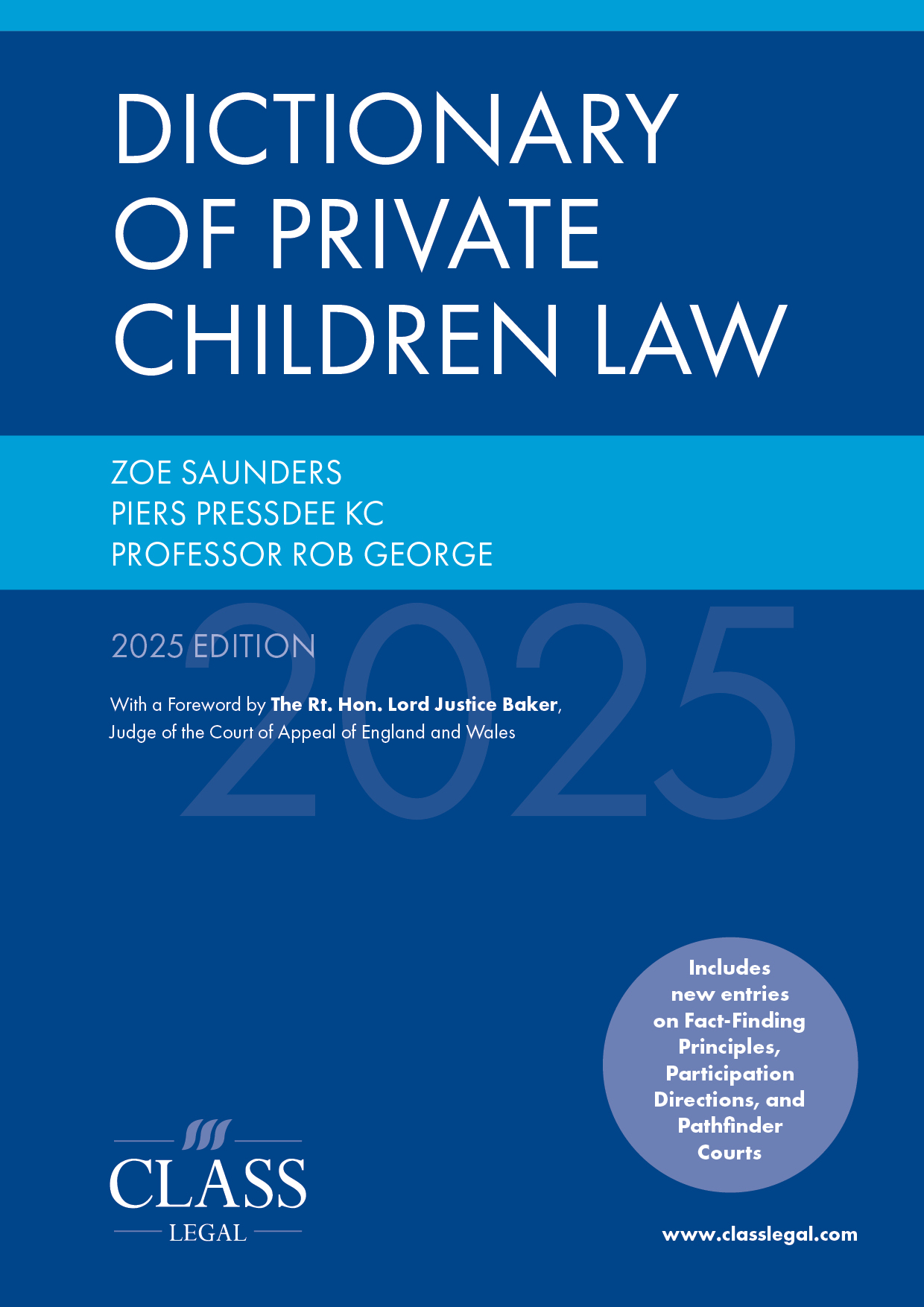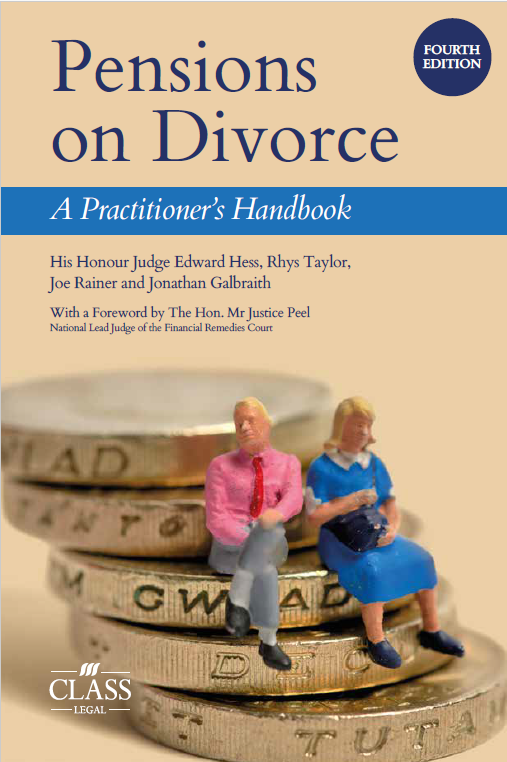
Hudson v Hathway [2022] EWHC 631 (QB)
Published: 04/05/2022 13:30
https://www.bailii.org/ew/cases/EWHC/QB/2022/631.html

Before I sat down to read Hudson v Hathway [2022] EWHC 631 (QB) and write this blog, I was primed ready to come up with a flashy introductory sentence. Something along the lines of, “once in a generation something so monumental happens in the Law of Trusts that even family lawyers have to pay attention”. Having now read Hudson – and not just scrolled through Twitter – I won’t start with such a statement. What I will say, though, is that this judgment makes a lot of sense and with hindsight since it was handed down, the outcome might even be described as uncontroversial. That is a compliment if you ever saw one. The trouble maker in me sincerely hopes an appeal is lodged just so we can hear what the Court of Appeal has to say.
But first, I must turn to the facts.
Mr Justice Kerr heard an appeal – yes, fingers crossed the Court of Appeal want to hear a second appeal! – from a decision of HHJ Ralton that because there was a clear common intention that Ms Hathway should receive the entire proceeds of sale from the home held in joint names without an express trust, she should indeed get the entire proceeds of sale. This was so even though the initial intention was that the parties should be equal beneficial owners. The intention and therefore the shares were ambulatory. HHJ Ralton accepted that Ms Hathway had relied to her detriment in not pursuing claims against Mr Hudson’s other assets, namely his shares and pension. Those claims may be weak, not least because the parties were not married, but it could not be said that they were non-claims, and that was sufficient.
The parties were in a relationship from 1990 to 2009 and had two sons together, both of whom are now adults. Mr Hudson made the greater contributions to mortgage repayments until 2011 when a literal disaster struck, and the home was blighted by an oil spill. In 2013 the parties agreed that Mr Hudson would keep his pension and shares – the parties appearing to hold themselves to the principle of sharing marital acquest despite not being married – whilst Ms Hathway would get the proceeds from the home. From 2015 solely Ms Hathway paid the mortgage. She also took sole responsibility for dealing with the aftermath of the oil spill and the ensuing litigation.
Mr Hudson became impatient when, in his view, but not in the view of HHJ Ralton, Ms Hathway was stalling in selling the home. He wanted their financial ties severed quicker. In 2019 Mr Hudson issued a Part 8 claim for the sale of the home and wanted half of the proceeds. As we now know, he did not get them.
Mr Hudson appealed. Mr Hudson argued Ms Hathway’s detrimental reliance was not made out.
In response Ms Hathway revived her argument – unsuccessful before HHJ Ralton – that she didn’t even need to prove detrimental reliance anyway. Further, the other pleaded detriments not found by HHJ Ralton should have been found.
Now let me put you out of your misery. What did not convince HHJ Ralton did convince Mr Justice Kerr: detrimental reliance is not necessary in an ambulatory trust in a domestic consumer context.
And the reason? Well, it has perhaps been staring us in the face since 2007. It was “striking” Mr Justice Kerr said that none of the majority speeches in Stack v Dowden [2007] 2 AC 432 and in Jones v Kernott [2012] 1 AC 776 mentioned the requirement of detrimental reliance when forming or varying a common intention trust. This is all the more striking because these two cases explicitly had the intention of settling and clarifying this area of law. There is a presumption that equity follows the law, but one does not need to prove detrimental reliance to rebut it. One just needs whatever good evidence is available to rebut the presumption. To require detrimental reliance as well as an express common intention would be otiose: the unconscionability requirement is met by the promise being broken.
I could have sent in some fanmail to the Royal Courts of Justice to let Mr Justice Kerr know I think he is right, but instead I’m saying so in this blog. It is important to bear in mind two points. First, equity is about rescuing parties from the unconscionable outcomes that would result if the law was always the law. Second, two people owning one asset, especially a home, is a tricky situation and the local planning authority might have something to say if someone enacted the Judgement of Solomon over their mid-terrace. Owners really ought to express what they want in a deed of trust but should they fail – and conveyancers too are only human – equity will help. There has to be a trust, so a trust there shall be. Equity is often equality, hence the presumption that the equity follows the law i.e. equal shares. Equity though is also keeping your promises! If at the time of purchase, parties agree a 75:25 split that will, all things being equal, be the outcome. Why then should it be any different if the parties agree one thing and then later agree another? Should a party be able to apply to enforce the first intention whilst ignoring the later formed second intention? It doesn’t sound very fair to me.
It is also worth bearing in mind that the court can impute the equitable split once it has found a common intention trust. If the parties did not consciously turn their minds to the topic either in their words or by their conduct, but 50:50 or 75:25 etc, is objectively the just outcome, then the court will impute that intention. It would be odd if the court can, let’s be honest, invent its own division but the parties’ most recent express intention could not be enforced because they had a preceding intention.
Mr Justice Kerr did not disturb HHJ Ralton’s findings on what did constitute a detriment, instead taking the orthodox line that an appeal court should be slow to interfere with a trial judge’s findings of fact, especially where there was an evaluative element to them. It was sufficient that Ms Hathway, not married to Mr Hudson and therefore no friend to the Matrimonial Causes Act 1973, did not pursue “some sort of civil claim” against Mr Hudson’s pensions or shares. Some people’s brows may have furrowed at this thought. I, for one, suspect when the dust settles that this might be the more controversial part of the judgment but for the time being it will be the (non-)detrimental reliance that will grab the headlines.












